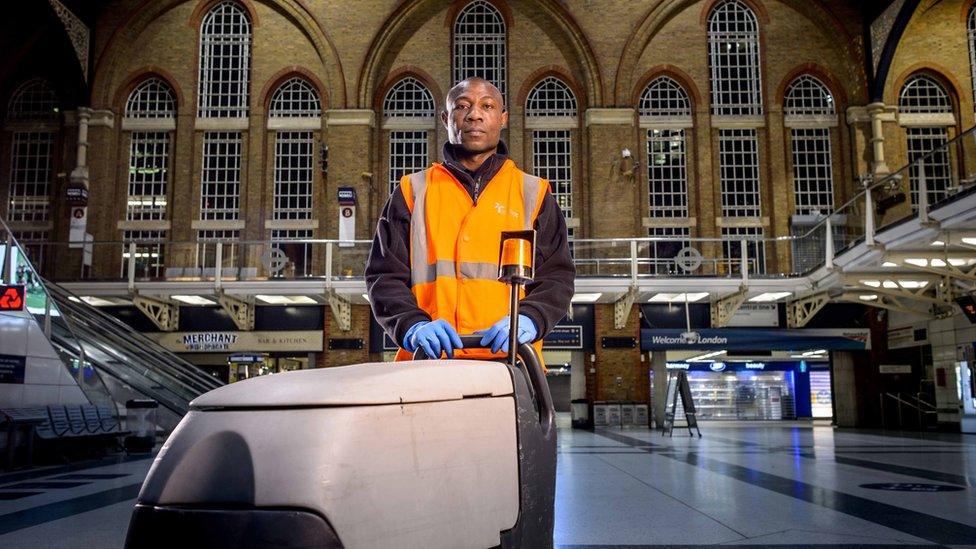Interserve lenders resigned to loan write-offs
- Published

Interserve is building the Defence and National Rehabilitation Centre at Stanford Hall in the East Midlands
Sources close to Interserve's creditors have told the BBC they accept they may have to write off some of their loans to ensure the company's survival.
Lenders described talks around the company's future as "extremely fluid".
They recognised inevitable comparisons to the situation that engulfed Carillion, but insist the company's management still has lenders' support.
The BBC also understands Interserve is expected to announce imminently it has secured new public service contracts.
The Labour party leadership - ideologically opposed to the role of private companies in the provision of public services - has insisted that no new government contracts should be awarded to the company while it is in a parlous financial position.
That position is widely considered within industry to be detrimental to the future of a company that employs 75,000 worldwide, 45.000 in the UK.
The government was widely criticised for continuing to award contracts to Carillion after it became clear that the company was in financial distress.
However, many industry watchers said the government was "damned if they did - damned if they didn't", as any moratorium would have hastened the company's demise. Many think the same rule holds true for Interserve.
The value of Interserve has plummeted 75% since the beginning of the year. It is now worth around £35m - about one-20th of the amount it will owe its lenders by year-end. That is gruesome arithmetic for a company that is trying to encourage new investors to believe that the company has a future.
Former shareholders have expressed scepticism that Interserve will be able to make a compelling case for investors to plough in new money.
The government is both forewarned and forearmed by the Carillion collapse. On the one hand, it knows well how the demise of third-party contractors can cause disruption. On the other, it knows that other industry contractors ultimately proved equal to absorbing the public service work that Carillion could not fulfil.
The Cabinet Office has been going through Interserve's contracts and working out a "living will" in which other service providers will step in to mitigate any interruptions.
The future of Interserve remains uncertain, but the government now thinks it has a plan to cope if another major public service contractor goes to the wall.
- Published9 December 2018
